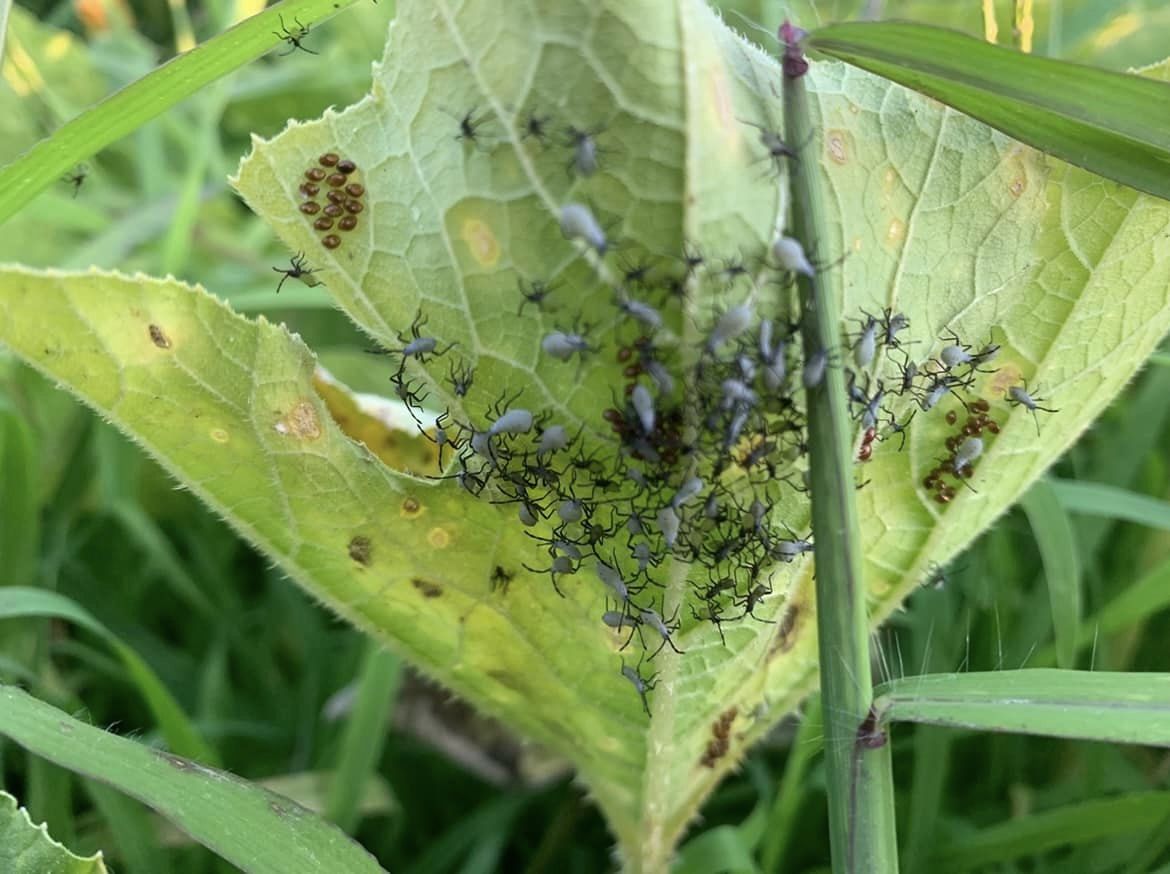
Summer. Sun-drenched days, vibrant blooms, and…squash bugs? These shield-shaped, sap-sucking villains can quickly turn your dreams of a bountiful squash harvest into a wilting nightmare. But fear not, fellow veggie enthusiasts! Before you reach for the chemical sprays, let’s explore some natural, eco-friendly ways to outsmart these squash-loving scoundrels and reclaim your garden paradise.
This post may have affiliate links. This means that sometimes when you click a link on our site and make a purchase on Amazon, we may earn a small commission at no additional cost to you. We only recommend products we truly believe in, and your support helps keep us running!
Demystifying the Squash Bug: Unveiling Their Sneaky Strategies

Squash bugs, with their flat, brown bodies and piercing mouthparts, are like tiny vampires for your squash plants. They pierce the leaves and stems, sucking out vital fluids and leaving your plants weak and vulnerable.
Here’s how these sneaky bugs operate:
- Overwintering Champs: Adult squash bugs spend the winter hiding in soil debris or under mulch. Come spring, they emerge hungry and ready to munch on your unsuspecting squash seedlings.
- Egg-cellent Laying: Females lay clusters of brown eggs on the underside of leaves. These eggs hatch into nymphs, mini versions of the adults, who continue the feast on your precious plants.
Early detection is crucial! Regularly inspect the undersides of your squash leaves for signs of eggs or nymphs. The sooner you take action, the better your chances of saving your squash crop.
Nature’s Arsenal: Eco-Friendly Tactics to Squash the Squash Bug Threat
Chemical pesticides might seem like a quick fix, but they can harm beneficial insects and disrupt the delicate balance of your garden ecosystem. Luckily, nature provides a wealth of tools to combat these squash-loving pests. Here are some effective, eco-friendly ways to outsmart squash bugs:
1. Building a Fortress:
- Row Covers: Lightweight row covers made of mesh fabric can create a physical barrier, preventing adult squash bugs from reaching your young squash plants and laying their eggs. This method is most effective for protecting seedlings and early plants.
- Mulch Magic: Apply a thin layer of straw or shredded leaves around the base of your squash plants, creating a barrier that makes it difficult for adult squash bugs to reach the stems.
2. The Power of Plants:
- Trap Crops: Plant a sacrificial crop like kale or nasturtiums near your squash. These leafy greens might be more attractive to the squash bugs, giving your main crop a fighting chance.
- Companion Planting: Consider planting strong-smelling herbs like mint, thyme, or borage around your squash patch. These fragrant neighbors may not be the tastiest options for squash bugs, encouraging them to find dinner elsewhere.
3. Beneficial Bug Brigade:
- Attract the Good Guys: Ladybugs, parasitic wasps, and minute pirate bugs are natural predators of squash bugs. Encourage these beneficial insects to visit your garden by planting flowering herbs and creating a habitat that welcomes them.
4. Homemade Sprays:
- Neem Oil Power: Neem oil, a natural product derived from the neem tree, can be effective in deterring and repelling squash bugs. Use a diluted neem oil spray according to package instructions, focusing on the undersides of leaves where squash bugs like to hide.
- Hot Pepper Surprise: Spicy peppers pack a punch (literally!). Create a hot pepper spray using chopped peppers, water, and dish soap. Similar to other homemade sprays, dilute this concoction well before using it on your plants.
5. Hand-Picking Patrol:
- Direct Action: For small infestations, the good old-fashioned method of hand-picking the squash bugs and their eggs can be quite effective. Look for the adults and eggs on the undersides of leaves and carefully remove them. You can even drop them into a bucket of soapy water to ensure they don’t return.
Remember: Consistency is key! Combining several of these natural methods will create a multi-pronged defense, making your garden less appealing to squash bugs. Regularly monitor your squash plants and be prepared to reapply homemade sprays or hand-pick any remaining bugs.
